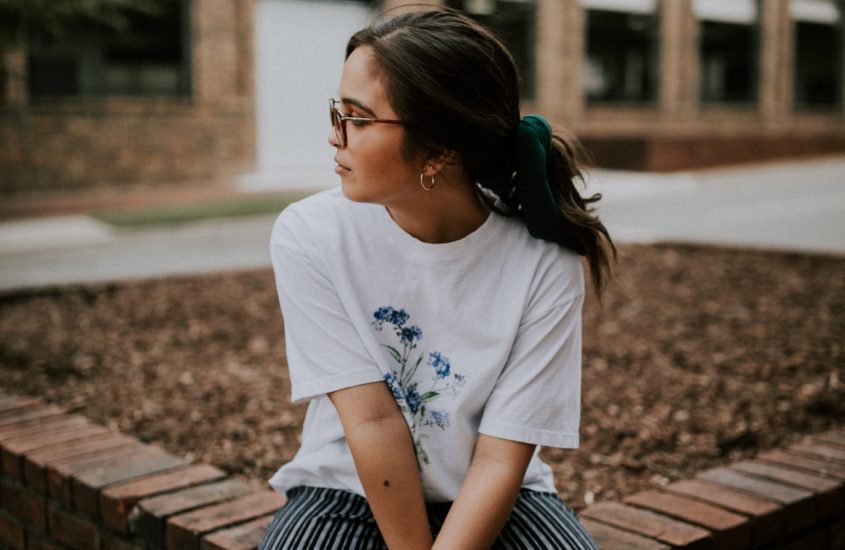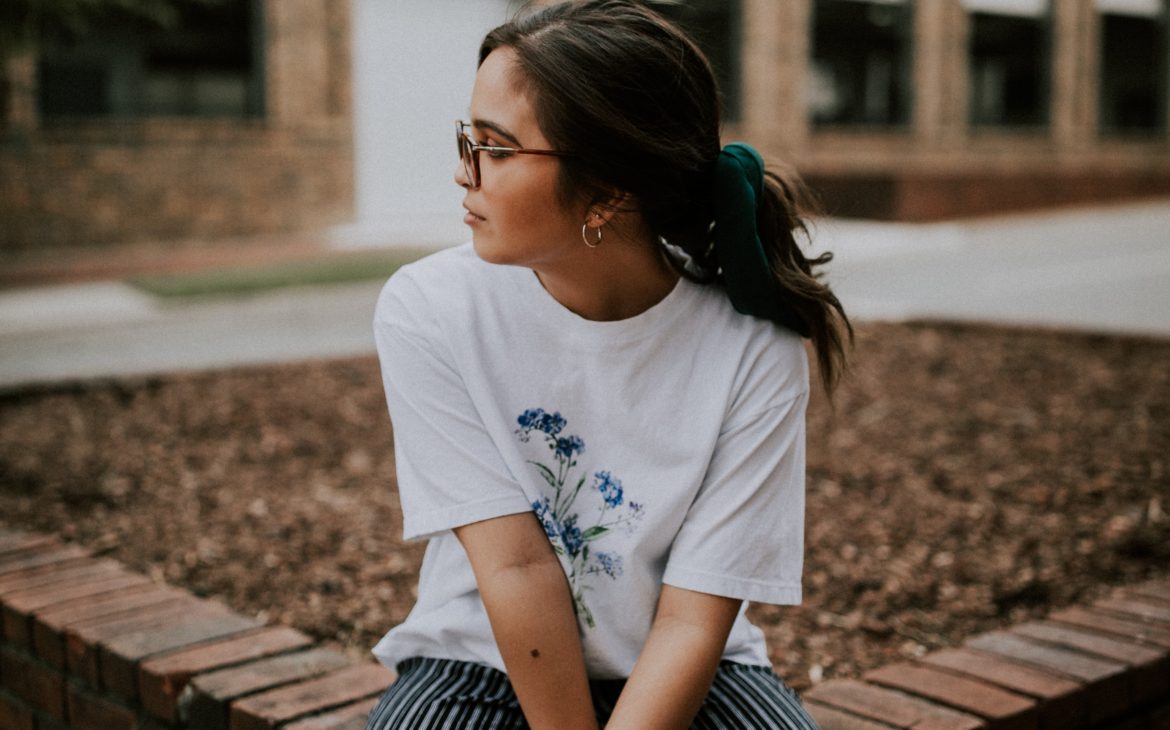A Story Of The Polemica Of Grief By: Connie Pertuz Meza


I began to read the news at the start of this summer with the fervor of a woman afraid of losing something, a statistic, a headline, a stance, a warning, anything to help me make sense of what unfolded in front of me. At the time, I didn’t question my obsessive combing through The New York Times; after all, I was living through a global pandemic, civil unrest, evidence of climate change everywhere, and the most contentious election year in modern American history. Only later would I connect it to the ambiguous grief of almost losing my father.
Papi almost died twice, once in the spring and once in the summer. Both Mami and Papi became infected with COVID-19 in mid-March when New York City was the epicenter of the pandemic in the United States. Bedbound for several years, with advanced dementia, and a body left weak by decades of alcoholism, insomnia, and depression, Papi was vulnerable to COVID19, and I was certain he was going to die during those early days in the spring. Time lost meaning then, I measured it by the budding tree outside my bedroom window, and I wondered how long before we lost Papi. Two weeks, Papi burned with fever for two weeks, sipping on spoonfuls of Pedialyte. Protected by gloves, a mask, and six feet of distance, I entered my parents’ apartment everyday petrified to find them dead. I kept my coat on during those early days, despite the heat rattling in their apartment, unable to shake off a chill, afraid death would cling onto me, my coat became my armor. Despite making sure their refrigerator was stocked, their medication picked up, and Papi’s home attendant had everything she needed, I felt powerless to help my parents. Mami was sick, Papi was dying, and I was living.
Spring was flourishing by the time Papi was able to be propped up on his medical bed and be fed clear broth. I now went to visit Mami and Papi every other day, and on the drive there, instead of marveling at the cherry blossoms, I stared in awe at the empty streets of Brooklyn, the refrigerated trucks around the two funeral homes in route, and the dome around the local hospital, seen blocks away. My coat replaced by a jacket, I walked into my parent’s apartment in search of signs of life, not death, coming to the conclusion Papi would not die from COVID 19, as so many had. Later my obsession with the death toll in the United States began, around the time Geroge Floyd was murdered, and the United States hit the grim milestone of a hundred thousand deaths. Three days, apart, one death, and then the exponential mass of deaths. Struck by the powerlessness of systemic racism and a global pandemic, exhausted trying to prove to others the gravity of both, I let go of thinking this new normal would come to a halt soon. Instead, I realized what we were living through had momentum and the only thing I could stop—-was me.
When you lose someone or something or come close to losing that someone or something, your mind traces over the space left by the loss, over and over, like a tongue when you are a kid in search of a missing tooth. I didn’t lose Papi during the start of the pandemic but almost losing him triggered the waves of the grief of having lost him before, first by his alcoholism, then the parental alienation created by Mami, and later his diagnosis of dementia. The grief of Papi braided itself with the loss of a greater distrust in the American government. Overwhelmed by the feeling of being left behind, like Mami often threatened to do, I prayed to the ancestors, as I stared at the tree outside of my bedroom window, now a bold green, comforted by the constant change of nature. I sat crisscrossed on my bed, my head resting on my fist, tilted towards the lush leaves, and in those moments of stillness and silence, I did not feel abandoned, but connected.
I thought about how Papi began the late morning talk show he hosted from our kitchen table, aquí hablándole al pueblo Latino en Nueva York, Pepo Pertuz para Radio WADO. His mouth hugged every vowel, as he lifted his chin, speaking to his faithful audience in his underwear, broaching topics of history, politics, community, and of course sports, in under an hour on the phone. Papi was a journalist, writing freelance for years, before landing a steady job at El Diario De La Prensa, and the show with Radio WADO.
Papi’s hands were shaky and his fingers were always stained with newsprint. Busy, never at ease, typing on his old Brother typewriter, combing through stacks of old articles, which he neatly cut and saved in manila envelopes and stacked in the hallway closet. Papi even looked the part, forever writing in his skinny slanted script, pens, and notepads in the pockets of his guayaberas, the outline of the suspenders visible under his shirts, glasses resting either low on the bridge of his nose or the top of his head. The news forever on, he’d occasionally glance up at the television resting on the refrigerator, or he’d raise the volume of the small radio with direct transmission from RCN Colombia, needing a cacophony of noise to work through. On the rare occasion when Papi was home and not working, he had marathon conversations on the phone with his buddies, laughing, gesturing, and punctuating the air with the words: doctor, hermano, and socio, addressing his friends with important titles reserved for only them. I thought of the words he did not use, esposa, hijas, and hija, as I listened from the living room, stretched across the sofa reading the current book I had checked out of the library. I caught snatches of his conversations.
Papi spoke to the person on the other end of the line, his voice filled with pride. “Yo soy Caribeño.”
Sometimes his voice was coiled tight with disgust and anger.“El Colombiano, no sabe quién es, nos robaron nuestra historia. Los Españoles, ellos violaron nuestras Indias y nuestras Negras.”
Other times his words were heavy with disappointment, like when he spoke about his fears around Colombian pride. “Atrae el odio de la comunidad.”
Papi didn’t become an American citizen, despite his permanent residence, and decades living in the United States, clinging onto loyalty to Colombia, not until right before dementia further pulled him from me, did he become a citizen. He voted once in this country before he was no longer physically or mentally able to cast his ballot, voting democrat, which he likened to his beloved party in Colombia, El Partido Libereal. In 1984 and 1988, he cheered for Jesse Jackson’s nomination for a presidential candidate, shaking his head back and forth when Walter Mondale won instead, only to be defeated by Ronald Reagan, then Michael Dukakis, who lost to George H.W. Bush. Years later, I researched Jesse Jackson, and took note of his study of theology in graduate school, and dropping out three credits short of a degree. Jackson soon began to focus on his civil rights work completely, Papi too had studied theology, attending seminary school in Barranquilla, dropping out soon after his admission. When asked why he never became a priest, especially with a middle name like Santos, Papi had one word to say: Hippocrates. Soon after Papi gave in his scapular and cossock, he joined a group of young socialists desperate to bring change to Colombia’s working class and poor.
Around the time the trees were limp with New York City humidity, I got a call from Papi’s home attendant; he was not eating and could barely open his eyes. The paramedic took him to the local hospital, now sans of the dome, which surrounded the nearby blocks in the spring. I raced over to the hospital to find Papi moaning and calling out for his father. Hours later, Papi would receive two blood transfusions, his hemoglobin not compatible with life, and doctors were at a loss why he was so severely anemic. Worried Papi was dying yet again, time took an alarming speed, running through the questions I longed to ask him, not desperate to know why he drank so much and was hardly home. I had been able to answer those for myself. What I wanted was his presence and not his absence.
“Cuéntame, en Colombia cuál era tu partido? Liberal o Conservador?” I looked at Papi’s color, it was ashen, and I bit the inside of my cheeks, so as not to feel the sadness invading my chest.
“Liberal!” Papi’s voice was as loud as when he projected from my childhood kitchen on Radio WADO.
“Y Jose Angel?” I asked about my abuelo.
“Liberal,” Papi looked at me in disbelief that I would ask such a question.
I thought about what liberal means, not what it means now, before it became associated with charged words like, leftist, socialist, and communist. For the people, progressive, an agent of social change, and willing to respect the behavior or opinions different than your own. I suppose that’s what Papi was doing when he left the seminary, joined a socialist group, came to the United States, searched for as a writer, what he spoke about on his Radio WADO show, and what he hoped for in Jesse Jackson.
Papi lost interest in la politica soon after Jesse Jackson lost to Dukakis, but I have since learned there was another face of hope, responsible for Papi’s departure from following politics. In the summer of 1989, the popular Luis Carlos Galan, the face of the New Liberal Party in Colombia was murdered openly in a campaign rally, his death striking tremendous pain for Colombians, vibrating to the hearts of Colombians abroad. Galan ran on an anti-corruption platform; he was for el pueblo, insisting on dismantling the machinery, which elected crooked politicians, and a government who bowed down to los bandidos of El Cartel De Medellín. Some say it was his fearlessness that killed Galan, I believe it was his audacity to continue to be fearless, despite the reign of terror Colombia was living through.
As the leaves change to jazzy yellow and warm red, and some become a sad brown, a few leaves still cling to the tree outside my bedroom window. I get lost in watching the leaves fall, a swirl of grace in the air, accepting the inevitable, and I wish for the same surrender. I pray to the tree behind the glass and my ancestors too for light and guidance. I still read the New York Times, but with less fervor, and more trepidation of what we are losing as a republic, and I think about Papi. How he is lost in the labyrinth of his mind, and for once I’m happy for this, seeing it as an act of mercy, he cannot see what’s unfolding in Los Estados Unidos.
On the day after Ruth Bader Ginsberg died, I went to visit Mami and Papi, like it’s my custom now on Saturdays. I walked straight towards Papi’s room. “Se murió Ruth Bader Ginsberg, esta malo esto Pepin” I whispered, using the nickname I gave him long ago, based on his moniker of Pepo, a stand-in for his birth name of Jose. My fists balled into my jeans and shoulders up around my ears, my throat tight, my chest tighter, and I waited for the silence, which usually follows, but I watched his eyes flicker with life, as he tried to understand what I was saying before he began to stare far away again.
When I engage people in conversations around politics, I wish it was Papi, and he would comfort me as he did long ago, rocking me to sleep until I felt safe to close my eyes.



